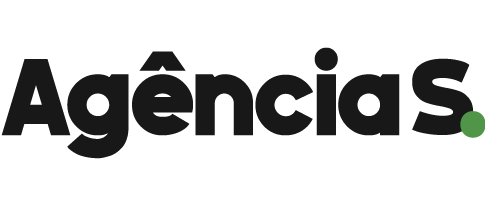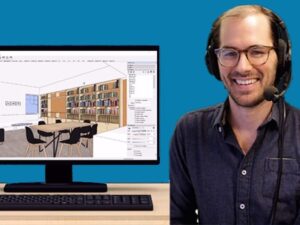120-Hour TESOL Course for Online English Teachers
- Descrição
- Currículo
- FAQ
- Revisões
Welcome to the 2024 edition of the ELT 1010: 120-Hour TESOL Course for Online English Teachers!
This 120-TESOL for Online English Teachers Course is informed by ground-breaking research in the field of applied linguistics, by the experiences of dozens of trained and qualified professional English teachers and by the growing need to make online language teaching practical, relevant, engaging and learner-centered.
If you’re getting started online, you’ve come to the right place.
If you’d like to teach in person, you’ve come to the right place.
If you have years of experience and wish to upskill, you’ve come to the right place.
This course is the only language teacher certification course which provides you with the following:
-
15+ hours of video content, 60+ hours of completing activities and assignments and 50+ hours of lessons looking through supplementary readings and complementary materials (approximately 125.5 hours in total).
-
40 modules focusing not only on building knowledge of language learning, language acquisition and teaching methodology but also on employability, career-building, networking and professional development.
-
15 hours of video lectures, each accompanied by 350 PPT slides which you may download and follow at your own pace.
-
22 post-module activities, 5 post-module quizzes and 15 major assignments to help ensure comprehension.
-
Content which has been planned and created by a tightly-knit and growing group of current and former freelance online language teachers who know your exact experiences (and potential experiences) firsthand.
-
Access to a language teacher community where you could network and grow alongside other educators.
-
100+ FREE language teaching resources, including guides, tutorials, worksheets, rubrics, course outlines and more.
-
A certificate of completion.
-
An opportunity for a practicum/teacher placement upon completion.
This course is packed with extensive content, including made-from-scratch materials, pedagogically informed research articles and comprehensive videos.
Topics Include…
-
Finding, using and creating materials
-
Creating and planning engaging lessons with digital tools
-
Gaining employment on platforms and by institutions
-
Teacher professionalization and long-term success
-
Overview and mitigation of key challenges
-
Much, much more!
A qualified instructor will be with you every step of the way. This is all you need for long-term success as an online English teacher. Learn and grow in Teach Ahead’s 120-hour TESOL program. We’ll see you in class!
-
1Module #1: Introduction to the Course (1.5 Hours)Vídeo Aula
How Do I Gain Access to Supplementary Resources?
If you wish to gain access to dozens of free resources, tips regarding employment opportunities and other cool stuff, join our language teacher community (the link is in "resources"). You will sign up to Teach Ahead for free, create a login and be able to access supplementary materials as you proceed through the course.
Overview of the Module
In this lecture, you will be introduced to the structure of the course, the course materials and our expectations of you as a student-teacher in ELT 1010. Contact us at weteachahead@gmail.com if you have any questions.
Module #1 Resources
Teach Ahead's Language Teacher Community: Join the community to network, develop and grow as a professional teacher. Create a login to gain access to dozens of language teaching materials.
Unit #1 Slides: 93 slides covering Module #1 to Module #10.
Jarvis & Achilleos (2013) gives a comprehensive introduction to Computer-Assisted Language Learning (CALL) and Mobile-Assisted Language Learning (MALL).
Course Breakdown: An overview of time spent on and concepts learned in each module.
ELT 2010: Introduction to Corrective Feedback for Language Teachers: A free course mentioned in the lecture.
-
2Accessing Our WebsiteVídeo Aula
This short tutorial shows you how to navigate Teach Ahead's website.
-
3Module #2: Introduction to Language Pedagogy (0.5 Hours)Vídeo Aula
Overview of the Module
In this lecture, you will be introduced to language teacher pedagogy. You will also learn about pressing questions and current trends in the research.
Module #2 Resources
Teach Ahead's Language Teacher Community: Join the community to network, develop and grow as a professional teacher. Create a login to gain access to dozens of language teaching materials.
Useful Research Journals for Language Teachers (Teach Ahead) - If you are interested in language education as a field of study, this blog post could help you find scholarly, peer-reviewed articles in the field of ALA.
-
4Post-Module Activity (0.5 Hours)Texto
-
5Module #3: Teaching English to Speakers of Other Languages (1.0 Hours)Vídeo Aula
Overview of the Module
In this lecture, we will introduce you to a few of the many acronyms and pedagogical concepts you will learn in this course. Don't worry. You don't need to learn them all! Here, we will discuss TESOL, TEFL and TESL along with their similarities and differences. Check out our blog post about TESOL, TEFL and TEFL in the "resources" section.
Module #3 Resources
Teach Ahead's Language Teacher Community: Join the community to network, develop and grow as a professional teacher. Create a login to gain access to dozens of language teaching materials.
TESOL, TESL and TEFL (Teach Ahead) - This blog post could help you understand the similarities and differences between these types of language teacher education.
-
6Post-Module Activity (0.5 Hours)Texto
-
7Module #4: Bridging Language Pedagogy with Online Pedagogy (1.5 Hours)Vídeo Aula
Overview of the Module
In this lecture, you will introduced to online pedagogy and the key trends in today's world of education. We will connect it to language pedagogy.
While finding the overlap, we will also identify how online language pedagogy could differ from in-person language pedagogy. This will help set the stage for your development in this course, which is not restricted to online language teaching, but gives more attention to teaching online than other TESOL certificates do.
Check out our blog post about 10 ways teaching languages online is different than teaching languages in person. The link can be found in the "resources" section.
Module #4 Resources
Kessler (2018) - This article could help you understand trends in online language teaching.
-
8Post-Module Activity (0.5 Hours)Texto
-
9Module #5: Developing Reflective Strategies (1.5 Hours)Vídeo Aula
Overview of the Module
In this lecture, you will introduce the concept of reflective teaching and how important this is as an online language teacher.
It was a conscious decision to start this 120-hour TESOL by focusing on you, the teacher, rather than focusing on the students and how they acquire or learn languages. The reason why is so that you could tap into your experiences and beliefs and then apply them to the new concepts introduced throughout our course.
As mentioned earlier, feel free to follow (for free) to our language teacher community where we track and share our growth as language teachers (the link is in "resources").
You will also find a link to a free reflective journal which you could print out to track your development. This could be found in the language teacher resource repository (the link is in "resources").
Module #5 Resources
10 Ways Teaching a Language Online Could Be Different Than Teaching a Language In Person - This article could help you orient yourself with online language pedagogy.
Teach Ahead's English Teacher Community - This is a space where you can network with and learn from other online English teachers. You are encouraged to submit responses from the course to the blog forums.
Language Teacher Resource Repository - This is a growing collection of resources which usually have a cost. However, you have free access to these resources as an element of this TESOL course.
You will need a login before you can access the repository. So, proceed through the previous link (Teach Ahead's English Teacher Community) to create a login.
-
10Post-Module Activity (0.5 Hours)Texto
-
11Module #6: Developing Affective Strategies (1.0 Hours)Vídeo Aula
Overview of the Module
Congrats! You're halfway through this section.
In this lecture, you will introduce the concept of affective teaching and how important this is as an online language teacher.
As mentioned in the previous module, it was a conscious decision to start this 120-hour TESOL by focusing on you, the teacher, rather than focusing on the students and how they acquire or learn languages. The reason why is so that you could tap into your experiences and beliefs and then apply them to the new concepts introduced throughout our course.
All that happens in your career starts and ends with you. As mentioned earlier, feel free to follow (for free) to our language teacher community where we share mindfulness tips for language teachers (the link is in "resources").
Module #6 Resources
MacIntyre et al. (2020) - This article could expose you to the challenges of transitioning to online language teaching. This online TESOL course has taken findings such as those from this study into consideration to better equip teachers with the tools they need to be successful.
Teach Ahead's English Teacher Community - This is a space where you can network with and learn from other online English teachers. You are encouraged to submit responses from the course to the blog forums.
-
12Post-Module Activity (0.5 Hours)Texto
-
13Your Teacher Beliefs (Major Assignment #1) (0.5 Hours)Texto
-
14Module #7: Establishing Your Language Teacher Identity (1.5 Hours)Vídeo Aula
Overview of the Module
Now that we have begun developing productive strategies which will ideally help you to both survive and thrive in this profession, we will turn to begin working towards building your first document which could be included in the professional dossier that you submit your employers (even before obtaining your TESOL certificate).
This document is a language teacher philosophy.
This will help inform how you build your resume and cover letters. It will inform your pedagogy and career choices. You will begin to get a sense of your teacher identity and the first of three parts which will contribute to the first draft of your language teacher philosophy which you will submit at the end of Section #1 (in Module #10).
Module #7 Resources
Pennington and Richards (2016) - This article introduces you to research on language teacher identity. This may give you more avenues to explore if interested.
-
15Post-Module Activity (0.5 Hours)Texto
-
16Module #8: Establishing Your Language Teacher Style (0.5 Hours)Vídeo Aula
Overview of the Module
In this lecture, you will be introduced to the concept of language teaching style and the components that make up your teaching style. Of course, you may not have taught languages (formally) before, so this could be an opportunity for you to reflect on your experience as a learner and to imagine the possibilities for you as a language educator.
This will give you a sense of how your beliefs (Module #9) and identity (Module #7) could inform and be informed by your language teaching style.
-
17Post-Module Activity (0.5 Hours)Texto
-
18Module #9: Establishing Your Language Teacher Beliefs (1.5 Hours)Vídeo Aula
Overview of the Module
In this lecture, we will complete the introduction to your language teacher philosophy. We have touched on your language teacher identity and your language teaching style. Now, we will turn to your language teacher beliefs.
As we approach the end of Section #1 and the 25% point in this course, our advice to you is to not treat this as some sort of be-all and end-all of your teaching philosophy development. This course is cyclical, and we will return to your philosophy as we touched on concepts in Section #2, Section #3, Section #4, Section #5 and Section #6.
Instead, feel free to make mistakes in your preliminary beliefs. Make bold choices and be prepared to have your beliefs proven wrong (or right) as we explore research later in this course.
Check out the language teacher beliefs questionnaire which can be found in the Language Teacher Resource Repository (the link is in "Resources").
Module #9 Resources
Teach Ahead's language teacher resource repository gives you access to dozens of resources you may access to help develop as an educator or to use in your language classroom.
Gilakjani and Sabouri (2017)- This article gives you an overview of research into language teachers' beliefs.
-
19Post-Module Activity (0.5 Hours)Texto
-
20Module #10: Building a Language Teacher Philosophy (1.5 Hours)Vídeo Aula
Overview of the Module
Welcome to the end of Section #1!
Congratulations on making it this far in the 120-Hour Online TESOL Certificate course.
Listening to so many lectures and completing so many activities could be mentally and emotionally taxing. However, this TESOL is meant to resemble what you would experience in an in-person online-synchronous TESOL program. So, you're getting what you signed up for, and it's paying off!
In this lecture, you will be introduced to the Section #1 cumulating assignment. You will be submitting the first draft of your language teacher philosophy. We call it a first draft because you will continue contributing to your language teacher philosophy throughout the course and your career.
Module #10 Resources
Teach Ahead's guide to creating a language teacher philosophy gives you examples and a step-by-step tutorial to establishing and developing your educator philosophy.
Payant (2017) - This article goes over the pros and cons of writing a language teacher philosophy along with recommendations for what should be included in a language teacher philosophy.
-
21Your Language Teacher Philosophy: Draft #1 (Major Assignment #2) (1.5 Hours)Texto
-
22Language Acquisition vs. Language Learning (Major Assignment #3) (1.0 Hours)Texto
-
23Module #11: 4 Theoretical Schools of/Approaches to ALA (2.5 Hours)Vídeo Aula
Overview of the Module
Welcome to Section #2!
In this section, you will learn about the theoretical underpinnings of language acquisition, language learning and language teaching.
This will include the following:
Approaches to ALA
ALA / ALL theories
Language teaching methods
Language teacher terminology
Language teacher lesson structures
This module will focus on 4 approaches to understanding ALA and ALL:Behaviourism
Innatism
Cognitivism
Socio-interactionism
Module #11 Resources
Unit #2 Slides: 74 slides covering Module #11 to Module #15.
Teach Ahead's Language Teacher Community: Join the community to network, develop and grow as a professional teacher. Create a login to gain access to dozens of language teaching materials.
Teach Ahead's guide to understanding these four approaches to ALA could help you comprehend the similarities and differences between behaviourism, innatism, cognitivism and socio-interactionism.
Assaiqeli (2013) reviews a couple of the approaches to ALA that are of focus in this module.
-
24Post-Module Comprehension Check (0.25 Hours)Questionário
This quiz will check your understanding of the content of the lecture for Module #11.
-
25ALA vs. ALL Questions (Major Assignment #4) (1.0 Hours)Texto
-
26Post-Module Activity (1.0 Hours)Texto
-
27Module #12: Overview of Key SLA/ALA Theories - 20+ Theories (2.0 Hours)Vídeo Aula
Overview of the Module
Our general understanding of ALA/ALL approaches are influenced by more specific theories.
This module will introduce you to 20+ ALA and ALL theories. Most of these theories could apply to or are influenced by multiple approaches learned in Module #11.
Module #12 Resources
Teach Ahead's guide to understanding common ALA theories could help you to understand common ALA and ALL theories.
-
28Post-Module Comprehension Check (0.25 Hours)Questionário
This quiz will check your understanding of the content of the lecture for Module #12.
-
29Module #13: Introduction to Language Teaching Methods - 7 Methods (1.5 Hours)Vídeo Aula
Overview of the Module
ALA/ALL approaches (see Module #11) and theories (see Module #12) which come from research in linguistics and applied linguistics have led to the development of methods which guide language instruction in the classroom.
From these, we can craft language lessons, curricula and teaching materials. In this module, we review 7 language teaching methods:
Grammar Translation
Direct
Audio-lingual
TPR
CLT
TBLT
CBI / CLIL
Module #13 Resources
Celce-Murcia (2011) - This article goes over a couple of the approaches explored in this module while reviewing the theoretical underpinnings of the methods.
Kostadinovska-Stojchevska (2019) - This article gives an overview of teacher talk time and student talk time. These are two core concepts in CLT and other similar methods. Reading this will help you to prepare for Module #15 on language lesson structures.
-
30Post-Module Comprehension Check (0.25 Hours)Questionário
This quiz will check your understanding of the content of the lecture for Module #13.
-
31Module #14: Language Classroom Terminology Crash Course - 100+ Terms (2.0 Hours)Vídeo Aula
Overview of the Module
Do you have your pen and notebook handy? You'll need them.
This module is a rapid-fire round of useful language teacher terminology.
This is a list of terms that you will likely want to or need to understand and use in the first 1-3 years as a language teacher. Don't worry. You don't need to remember all of them now. Prioritize, plan and learn consistently.
Module #14 Resources
Teach Ahead's big list of 200+ terms for language teachers will help you to better understand the terms presented in the lecture (and more!).
Badjabi (2020) and Hatipoglu Kavanoz (2006) - tying together research on ALA approaches/schools, core theories, teaching methods and lesson structures (next module), the concepts of learner-centredness and teacher-centredness are key ideas in education and help guide the pedagogical philosophy of many teachers. Take this transition module as an opportunity to take a deeper look at these terms. Read at least one of these articles.
Spada and Lightbown (2008) and Raymond & Rubadeau (2010) provide insight into another pair of key terms in language teaching: focus on form (form-focused instruction) and focus on meaning (meaning-focused instruction). Take this transition module as an opportunity to take a deeper look at these terms. Read both of these articles, but it is recommended to read Raymond & Rubadeau (2010) first.
-
32Module #15: Introduction to Language Lesson Planning - 3 Structures (2.0 Hours)Vídeo Aula
Overview of the Module
Now that you have learned about language teaching methods, you could begin to create lessons with a research-backed, theory-based approach following a tried-and-tested structure.
In this module, you will learn about three common language lesson structures:
PPP
TBLT
The Flipped Classroom
Module #15 ResourcesLimitations of PPP (Bui & Newton, 2021) - This article details a few possible limitations of PPP.
Criado (2013) - This article gives a brief overview of the potential pros and cons of PPP.
Carless (2009) - This article compares and contrasts PPP with TBLT.
Motlagh et al. (2014) - This article gives an overview of TBLT.
Ozdamli and Asiksoy (2016) - This article gives an overview of Flipped Classroom methodology.
There are 10 lesson plans based on the PPP structure, 10 lesson plans based on the TBLT structure and 10 lesson plans based on the FP structure for you to better understand these lesson structures.
-
33Post-Module Comprehension Check (0.25 Hours)Questionário
This quiz will check your understanding of the content of the lecture for Module #15.
-
34Your Language Teacher Philosophy: Draft #2 (Major Assignment #5) (2.5 Hours)Texto
-
35Describe Your Teaching Context (Major Assignment #6) (2.0 Hours)Texto
-
36Module #16: Introduction to Pedagogical Assessment - 7 Types (1.5 Hours)Vídeo Aula
Overview of the Module
Welcome to Section #3: Applying Knowledge!
In this section, we will look at how the pedagogical knowledge and skills you have developed could be applied to different language learning contexts, particularly in the online format.
We will start by looking at pedagogical assessment. In this module, you will learn about seven types of assessment:
Diagnostic
Formative
Summative
Performance-based
Portfolio
Dynamic
Curriculum-based
Module #16 ResourcesThis blog post will help you to contextualize the seven types of pedagogical assessment which are explained in the lecture.
-
37Post-Module Activity (0.5 Hours)Texto
-
38Post-Module Comprehension Check (0.25 Hours)Questionário
This quiz will check your understanding of the content of the lecture for Module #16.
-
39Module #17: Introduction to Language Standardization (1.5 Hours)Vídeo Aula
Overview of the Module
To better understand the needs, wants and objectives of your students, it's helpful to gain an understanding of the evolution and regulation of the English language. This will allow us to understand the role of standardization, and how standard norms could be more or less important to a student's development depending on the context. This could also determine how much the teacher focuses on accuracy vs. fluency or meaning vs. form.
Module #17 Resources
Milroy (2001) - This article provides a critical take on language standardization, citing many potential drawbacks and challenges that it may cause.
Ramlan (2018) - This article provides insight into a few of the affordances and practical uses of language standardization.
Nwoko (2020) and Bakka (2018) - Read at least one of these articles to better understand the differences between prescriptivism and descriptivism. Think about and consider researching how these concepts relatd to language standardization and native speakerism.
Dazdarevic et al. (2015) - Follow up on learning about descriptivism, the corpus-based approach to language teaching could help to teach language is more of a descriptive and less of a prescriptive manner (if this fits in with your beliefs).
-
40Post-Module Activity (0.5 Hours)Texto
-
41Module #18: Introduction to Language Assessment Tools (2.5 Hours)Vídeo Aula
Overview of the Module
In this lecture, you will learn about one of the most widely recognized language assessment tools: the CEFR. You will also learn about the Canadian Language Benchmarks, which are pertinent to the Canadian context. This will ideally prompt you to seek out the resources which help you to regulate and assess language in your specific context (if there is one).
Module #18 Resources
The CEFR is a language assessment tool and measure of language proficiency which is used in many language institutions around the world.
The CLB is a language assessment tool and measure of language proficiency which is typically used in Canada.
-
42Post-Module Activity (0.5 Hours)Texto
-
43Module #19: Selecting Teaching Materials (2.5 Hours)Vídeo Aula
Overview of the Module
In this lecture, you will be presented with a few different considerations for material selection. This will give you more of a nuanced and critical lens for material selection, rather than only focusing on the CEFR benchmark (eg. "A2 learning materials"). You will also be supplied with dozens of tried-and-tested teaching materials for you to use with your language students.
Module #19 Resources
Tomlinson (2014) - This article gives an overview of different types of language teaching materials, citing popular uses for each.
-
44Let's Plan a Lesson! (Major Assignment #7) (2.0 Hours)Texto
-
45Module #20: An Overview of Language Teaching Contexts (2.5 Hours)Vídeo Aula
Overview of the Module
At Teach Ahead, we don't believe in a one-size-fits-all approach. The usefulness of different elements of this course is dependent on the context of you, the pre-service teacher.
Similarly, your teaching approach, methods and materials will only be as effective as they are appropriate for your student's contextual needs, wants and objectives. This module will give you an overview of context-based language teaching before diving into specific contexts.
Module #20 Resources
Belcher (2009) - This article gives you an introduction to English for Specific Purposes.
Campion (2016) - This article sheds light on a few key differences between EAP and General English.
This blog post summarizes and contextualizes common types of language classes such as General English, ESP, ETP and more.
-
46Post-Module Comprehension Check (0.25 Hours)Texto
-
47Module #21: A Focus on One-to-One, Online Language Teaching (2.0 Hours)Vídeo Aula
Overview of the Module
Many of you will be teaching one-on-one lessons at some point in your online language teaching career. This module will introduce you to this context and provide a few key considerations.
Module #21 Resources
This blog post goes over the realities of online, one-on-one language teaching, particularly on platforms such as Preply and iTalki.
This Conversational English syllabus has been tried and tested by hundreds of online teachers. It's typically sold by Teach Ahead for USD 9.99, but as part of your purchase of this course, you get it for free!
-
48Developing Style with Conversational English (Major Assignment #8) (2.0 Hours)Texto
-
49Module #22: A Focus on Group-Based, Online Language Teaching (2.0 Hours)Vídeo Aula
Overview of the Module
The virtual world offers many opportunities for group-based language teaching. This module will introduce you to this context and provide a few key considerations.
-
50Module #23: A Focus on Teaching English for General Purposes (EGP) (2.0 Hours)Vídeo Aula
Overview of the Module
Many self-employed teachers on platforms such as iTalki and Preply, along with teachers employed by institutions are tasked with teaching EGP: English for General Purposes / General English. This module will introduce you to considerations which are unique to this context.
Module #23 Resources
This blog post goes over the realities of online, one-on-one language teaching, particularly on platforms such as Preply and iTalki.
This General English syllabus has been tried and tested by hundreds of online teachers. It's typically sold by Teach Ahead for USD 29.99, but as part of your purchase of this course, you get it for free!
-
51Plan a General English Lesson (Major Assignment #9) (3.0 Hours)Texto
-
52Module #24: A Focus on Teaching English for Specific Purposes (ESP) (2.0 Hours)Vídeo Aula
Overview of the Module
Teachers who wish to teach at the post-secondary level may find themselves teaching English for Specific Purposes. This module will introduce you to different types of ESP, such as English for Academic Purposes (EAP) and English for Occupational Purposes (EOP).
Module #24 Resources
This blog post helps summarize and contextualize ESP.
This Interview Preparation syllabus has been tried and tested by hundreds of online teachers. It's typically sold by Teach Ahead for USD 9.99, but as part of your purchase of this course, you get it for free!
-
53Module #25: A Focus on Teaching English for Test Preparation (ETP) (2.0 Hours)Vídeo Aula
Overview of the Module
Whether it be online or in-person, English proficiency testing offers vast employment opportunities to certified teachers such as yourselves. IELTS, TOEIC, TOEFL and Cambridge English prep. are great ways to gain experience as a language teacher, even if you don't have many years of experience. This module will introduce you to ETP: English for Test Preparation.
Module #25 Resources
This blog post helps summarize and contextualize ETP.
This IELTS Speaking and Writing Preparation syllabus has been tried and tested by hundreds of online teachers. It's typically sold by Teach Ahead for USD 9.99, but as part of your purchase of this course, you get it for free!
Here is a link to Teach Ahead's free Introduction to Corrective Feedback for Language Teachers Course.
-
54Plan an IELTS Lesson (Major Assignment #10) (2.5 Hours)Texto
-
55Language Teaching Beliefs #2 (Major Assignment #11) (1.5 Hours)Texto
-
56Language Teacher Portfolio: First Draft (Major Assignment #12) (3.5 Hours)Texto
-
57Module #26: An Introduction to Online Language Teacher Employment (3.0 Hours)Vídeo Aula
Overview of the Module
Welcome to Section #4: Finding Employment!
This is finally the part that many of you have been waiting eagerly for because we will be giving you tips and tricks on how to find employment as a language teacher in this section.
This module kicks off the section by introducing you to the language teaching economy. We give you a few statistics related to investments in the language teaching industry to give you an idea of the direction that the sector is heading in.
Module #26 Resources
Litzenberg are Fraser (2023) discusses precarity in language teaching.
Are you interested in joining our team of English teachers? Consider filling out this form and we'll get back to you if you qualify.
-
58Researching Your Context (Major Assignment #13) (4.0 Hours)Texto
-
59Module #27: Overview of Online Language Teaching Platforms (2.5 Hours)Vídeo Aula
Overview of the Module
Teaching on a language education platform is the first step for many new language teachers. The convenience and ease of access is a clear selling point for many teachers. Depending on their financial circumstance (eg. expenses) compared to how much they make online, teaching on a platform could be a primary source of income. This module will introduce you to a few common language teaching platforms, such as iTalki and Preply.
-
60Module #28: Getting Started on a Language Teaching Platform (2.5 Hours)Vídeo Aula
Overview of the Module
Now that we've done some research on language education platforms, it's time to prepare a professional dossier and think about applying to positions.
This module is a very rough overview of the application process for popular language education platforms. The job opening status and requirements of these platforms change over time, so it's a good idea to check the blog posts in the resources which provide up-to-date information on these developments.
-
61Module #29: Overview of Online Language Education Employers (3.0 Hours)Vídeo Aula
Overview of the Module
Many language teachers choose to work for a language education employer instead of working on a language education platform. Many language teachers do both simultaneously.
This module gives you an overview of the kinds of language education employers that you may encounter throughout your career. The pros and cons are deeply context-based, so be sure to consult our supplementary resources and research the employment conditions in your region.
Module #29 Resources
Teach Ahead's Ultimate Language Teacher Job Board includes links to job boards from around the world.
-
62Post-Module Activity (1.0 Hours)Texto
-
63Module #30: Getting Started at a Language Education Institution (3.0 Hours)Vídeo Aula
Overview of the Module
This module wraps up Section #4 by discussing the typical process of applying to language education institutions. We also shed light on how this may be different from language education platforms so that you can feel prepared as you go through the application process.
Module #30 Resources
Are you interested in joining our team of English teachers? Consider filling out this form and we'll get back to you if you qualify.
-
64Job Search + Creating a Job Board Repository (Major Assignment #14) (5.0 Hours)Texto












